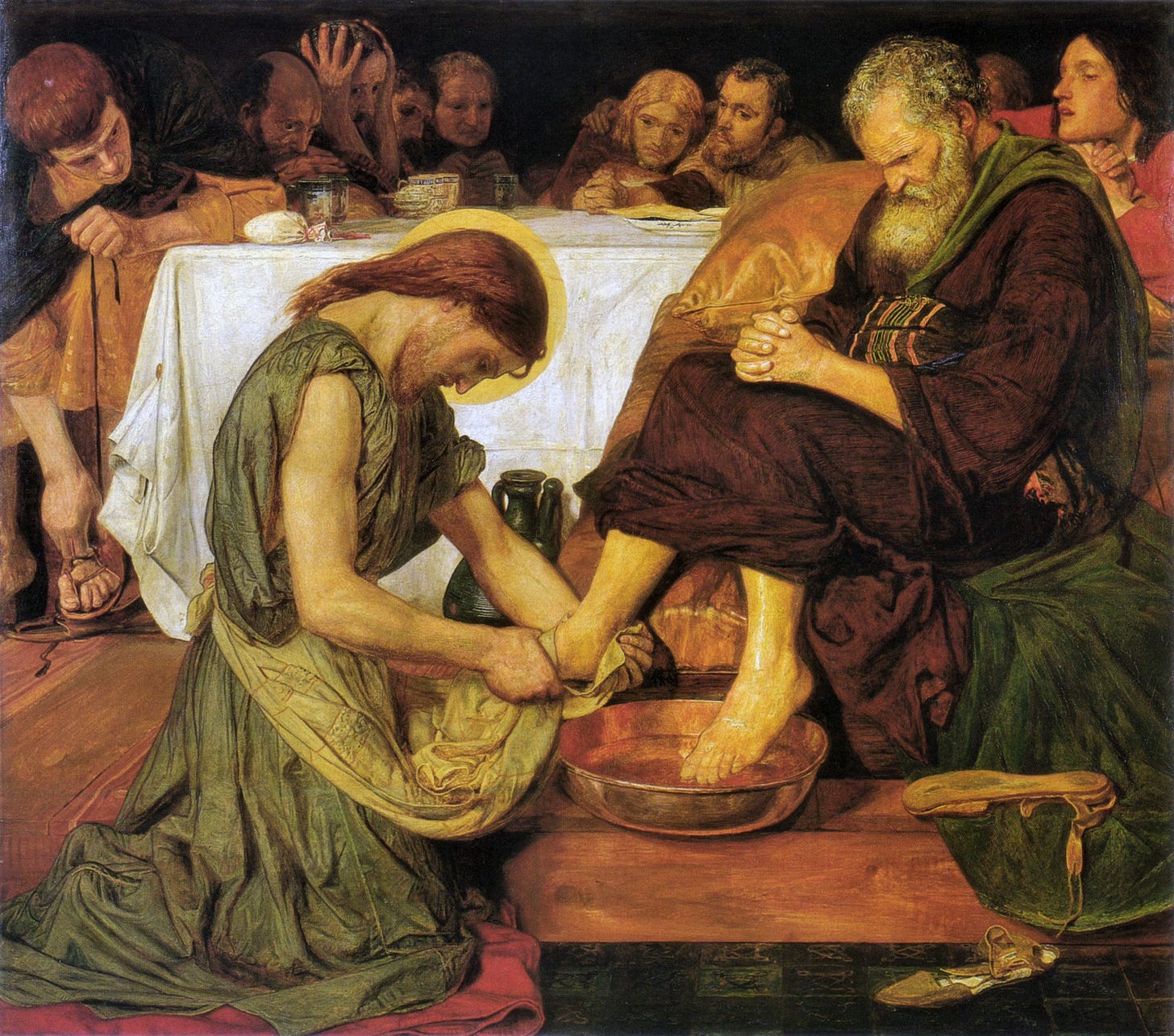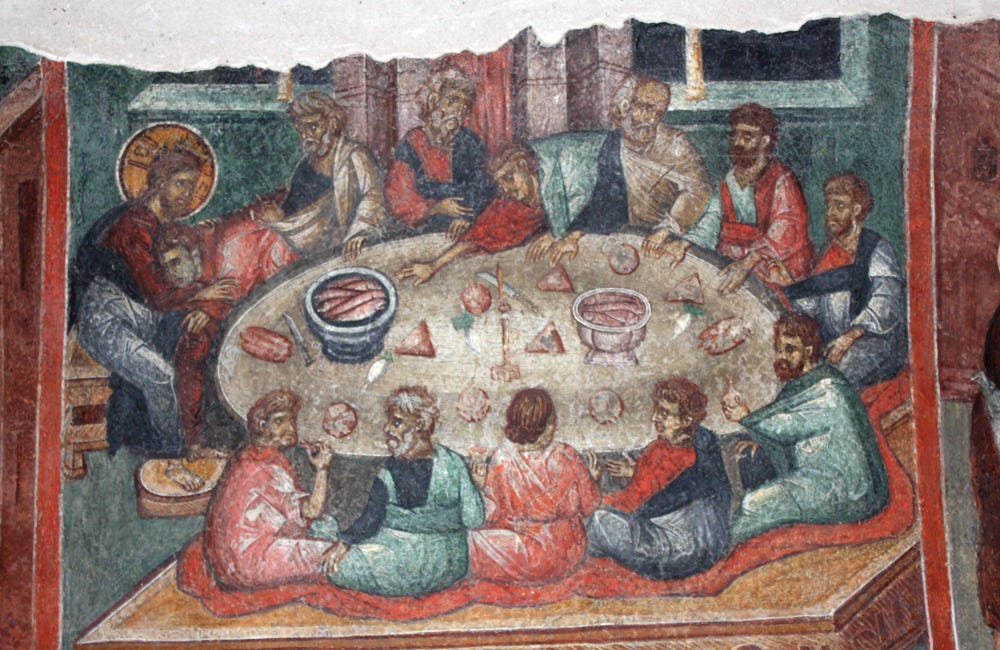Political impact of early Christianity
Review of Inventing the Individual: The Origins of Western Liberalism by Larry Siedentop
This book offers a detailed interpretation of what Christianity meant and the political impact that it had. Siedentop takes the reader on a long historical inquiry, from before the Bronze Age to the end of the Middles Ages and supposedly to the present day.
The book begins with a look at the political culture of antiquity. Before the Bronze Age, it started with the family, a peculiarly hierarchical and exclusionary system and mindset when compared to today. In the household, the patriarch was treated, even worshiped, like a god, with absolute authority over everyone: the maker of law, the final authority to whom everyone surrenders their individuality as the price of membership, which of course came with distinct survival advantages. Anyone who elected to leave was regarded as insane. Those outside the family were scarcely regarded as human, certainly not worthy of consideration as an equal.
As the organization of societies grew more complex through the Iron Age, this allegiance moved to clan, then to tribe, and finally to the city state, or polis. The political behavior of group members remained similar to that of family-based patriarchies, but the wider allegiances manifested themselves in polytheism – each new involvement (from an economic guild to international relations) found a new patron god, cult, or organized ritual around which citizens on the inside could rally.
Even Athenian democracy was subject to this political logic, carrying obligations of service and sacrifice on behalf of the state that are completely foreign to modern conceptions of democracy. This may all sound bizarre, but as a classics major, it clarified my understanding of the classical mind in a new way: Athenians regarded themselves as members in a hierarchical collective before they saw themselves as individuals, accepting their places and roles in the city state. Their principal concern was the security and glorification of the city-state, trumping individual and even family issues and considerations.
Beyond political behavior, according to Siedentop, this was reflected in the great Athenian philosophers, who justified inequalities of status as inherent and unchangeable. Plato and Aristotle looked to final causes, perfect and inalterable truths, all in support of the status quo and the aristocratic right to control and power. This is where I began to feel skeptical about Siedentop's approach: he often asserts that some philosophical development meant X, Y, or Z and was accepted as such by the people. I remain unconvinced that one can make such assertions, and they continued to accumulate through the rest of the book.
This approach, in my view, is a problem inherent in intellectual history. Ideas are somehow “in the air”, and while they may conform to the concepts that Siedentop wishes to advance, maybe that's not really the way it actually was. For example, he makes a great deal of Aristotle's notion of God as a “final cause”, a truth that only the elite can recognize and follow, similar to Plato's philosopher kings looking beyond the shadows in the cave; from this, he argues that the common people accepted their place as inferiors, hence saw themselves as inherently unworthy of the aristocratic kind of political power and condemned to lives of menial labor. (This is one reason why the pursuit of science via experimentation was scorned by the elite of antiquity: it was seen as manual labor, hence improper for the aristocracy to pursue.) While this may have been true in many cases, it is hard, if not impossible, to prove that it applied to everyone. How widely accepted, I asked myself, were these notions? How can we know? Of course, there is enough truth in these assertions that I was able to keep going, but it made me uneasy for 3/4 of the book.
Paul's creation of Christianity, Siedentop continues, represented a change so fundamental that many intellectuals have failed to understand its import. As he molded Christ's message, we are told, it provided a philosophical innovation of immense significance: henceforth, all were to be treated as equals in the eyes of God, which would undermine, if not destroy, the old philosophy of hierarchy and permanent political-cultural status quo. This spawned the greatest challenge that the polytheistic world of the polis had ever faced, which goes a long way to explain why it was opposed by the Romans with such vehemence and violence. Finally, Christianity made individuals question themselves and their own conduct (in sin, in worthiness to enter heaven), replacing the traditional rituals of fealty and sacrifice to inscrutable gods (or emperors) for favor. Henceforth, it was the individual who became the most important actor, rather than the city-state.
It is at this point that Siedentop introduces a novel interpretation of why and how Christianity caught on when it did. The Roman Empire reached its apex at the beginning of the 2nd century CE, essentially wiping out the autonomy that city states had enjoyed for nearly 1000 years and imposing a military autocracy; as such, the polytheistic gods – the presumed source of local power and uniqueness – lost much of their potency. Romans began to look for new systems of worship and religion, leading to an explosion of interest in the many monotheistic religions then on the rise as well as Asian mystery cults and the like. With the autocracy came the cult of the Emperor, who wielded a God-like power and authority over everyone; God (one or many) would have a singular relationship with the Emperor, lending him special, even divine, legitimacy. Once the orderly Empire began to break down less than a century later, this interest only deepened in intensity, even in desperation, which Constantine cemented into Christianity with his conversion. This was a new spin on the debate, which was worth the price of admission to me.
After Rome fell, the institutions of the Middle Ages continued to be influenced by Christian beliefs, according to Siedentop, in their turn developing into democratic practices and policies. To argue the point, Siedentop goes deep into the evolution of the monastic movement, which supposedly served as a model to Kings from the 11thcentury or so. This is where the book lost me, perhaps because I know less about the period than I do about classical antiquity, but principally because of the shortcomings of intellectual history that I mentioned above. Siedentop concludes that Christianity, and not the Renaissance and Enlightenment, was what gave birth to secularism, liberalism, and even the development of the individual as a political actor with no inherent limits, at least by class. It was a continuous evolution, not abrupt change, he argues. As I said, there is enough truth in this that it is worth a careful read. But I don't agree with where he takes this.
This is an engaging book that, while possibly wrong, fascinates nonetheless. It is beautifully written and tightly argued: I will no doubt read it more than once.
Related reviews:
How Europe became Christian
During the last 2000 years, perhaps the most fundamental transformation in Europe was the conversion of pagans into Christians. This subject fascinates me and I have been seeking a full explanation since my days as a classics civ major. To put it mildly, explanations are legion, ranging from the purely theological to psychological and sociological remov…
Sociological view of Christianity's triumph
I have long wanted to understand what need Christianity fulfilled and why it displaced paganism in just a few generations, at least in the Graeco-Roman civilization. It is a great mystery to me and I have spent much of the last decade seeking answers.
How Roman Emperors used Christianity to enhance their power
The title of this book made me fear it was a New Atheist screed that would blame everything on Christianity. This is a disservice. After long hesitating to pick it up, I was delighted to find a detailed and profound inquiry into one of the most significant periods in western history, i.e. how Christianity triumphed over previous religions and what it me…








Pagels and Ehrman are great. This post piqued my interest especially because email correspondence I was having with a recently surfaced 2nd cousin who discovered me through a genealogy website. All of my ancestral lines come from staunch Protestant and freethinking traditions-but my cousin's father married a devout Roman Catholic and converted. Because I am part of the LGBTQIA community, our conversations led to us terminating our conversations.
Nonetheless, I learned some interesting things that relate directly to your review-and support your skepticism. My cousin made numerous references to both "the Magisterium" (the official teaching of the Roman Catholic Church), along with "natural law", "natural philosophy", and "human nature", and it is the latter three, which inform scriptural interpretation in the Magisterium. You know a LOT more about the Classical Period than I do, but though the extremely influential St. Augustine of Hippo was familiar with the works of the Grecian philosophers, he picked and chose what he wanted to incorporate. Nonetheless, the RC Church will also cite "Aristotle" as a source for its ideas on "natural law" and "human nature", though implicit in those names is the idea that we already know what the laws of the universe and the mysterious workings of the mind really are-and this is a VERY important difference between all but the most liberal Christian theology and what I regard as the "great leap forward" in Enlightenment thought-which is basically that of empiricism, skepticism-and the inklings of moral relativism. Even in 2005, Pope Benedict XVI spoke out against "moral relativism" calling it "the major evil facing the church" . But I would argue that until one can sever the social contract from "God-given law", one doesn't really have a "liberal democracy".
Though I should probably read the book before criticizing it, from your description, it sounds like he takes a "yada, yada, yada" approach to a lot of anthropology and psychology that is not REALLY settled-or finished. I don't have a knighthood like Larry Siedentop (Dame Emily Salisbury-Keene DOES have a nice ring), but in my opinion, it was Sola Scriptura and its symbiotic relationship to printing that really challenged the authority of "The Church".